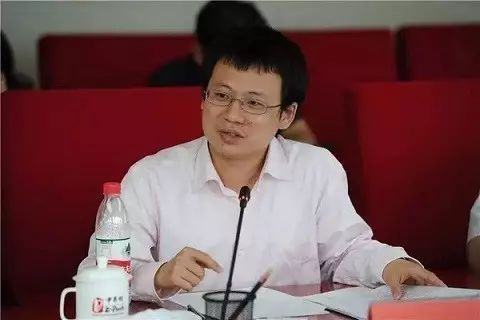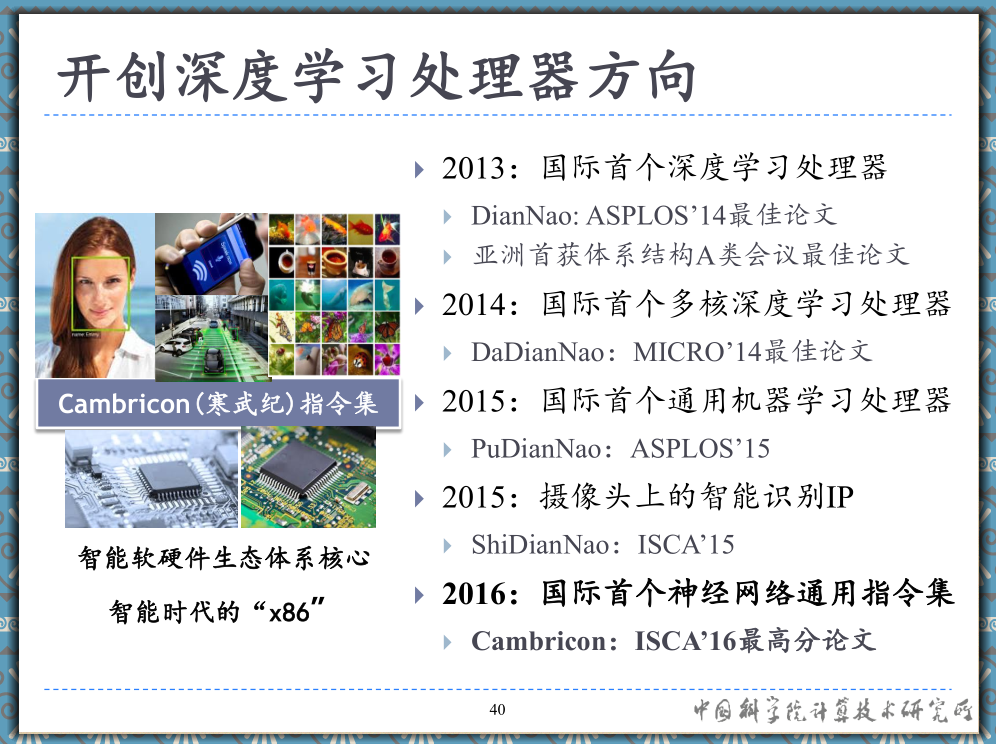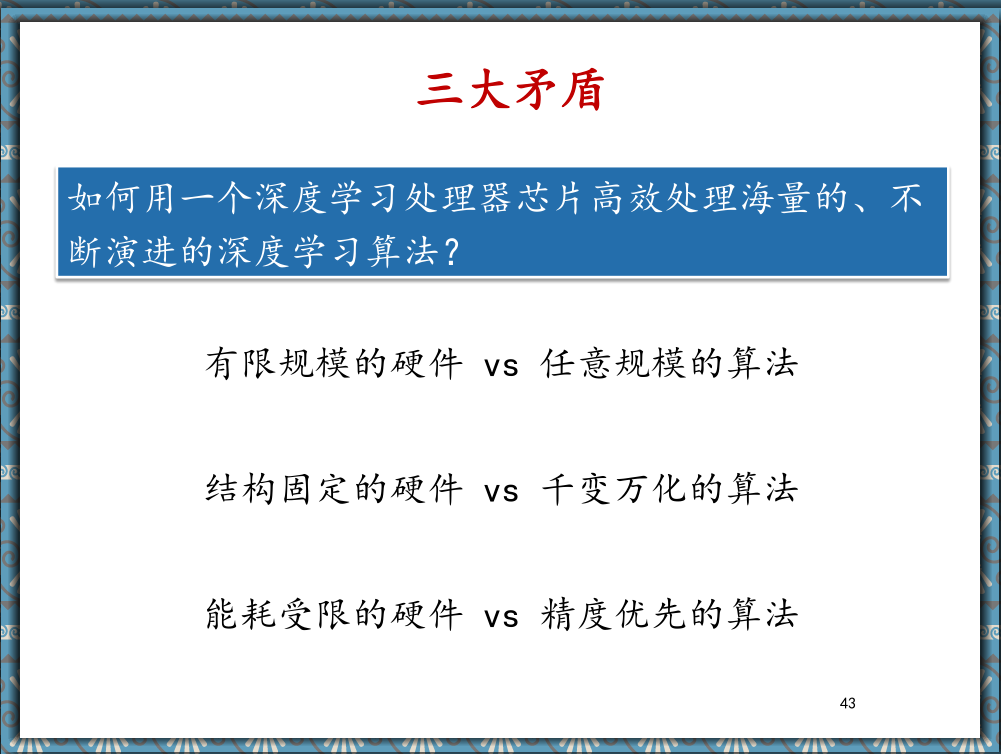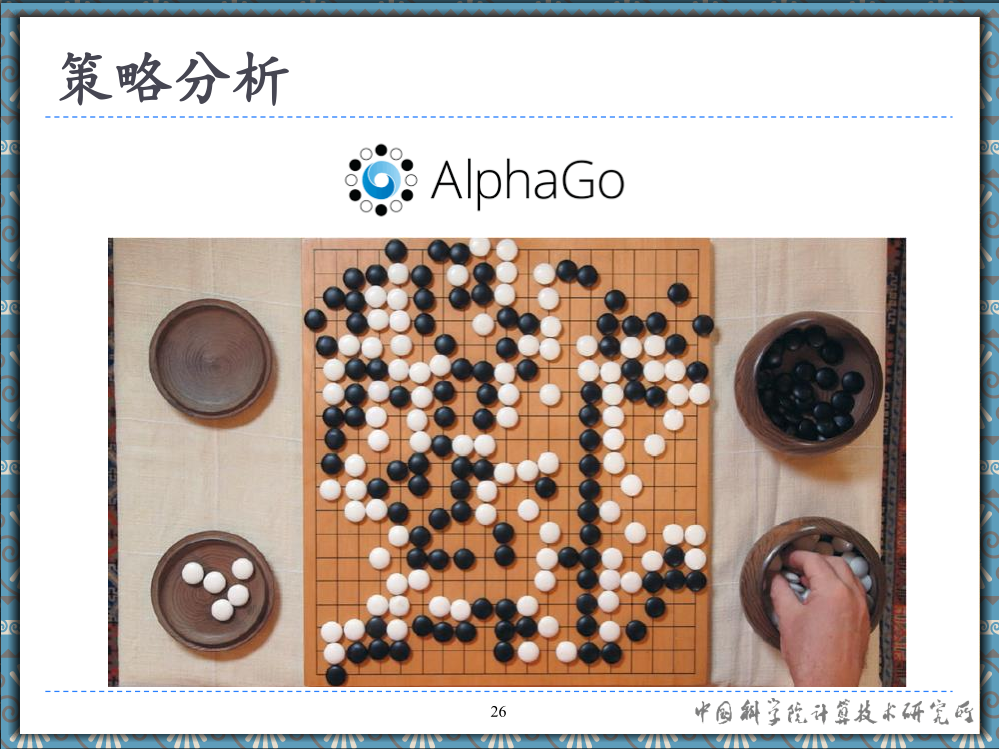Exploring neural network processors——The third online lecture of the Forum of School of the Gifted Young
On the afternoon of May 13th, School of the Gifted Young (SGY)invited our outstanding alumni Yunji Chen to give the third online Gifted Youth Forum lecture for teachers and students. Chen is the assistant director of the Institute of Computing Technology of the Chinese Academy of Sciences, and the director of the Intelligent Processing Unit Research Center at the Institute. His lecture was titled “The ‘core’ of machine intelligence.” The forum was hosted by Prof. Lan Zhang, the vice dean of SGY.

Firstly, Dr. Chen reviewed his own learning and research experience. Then he explained the importance and development of neural network processors in a simple but profound manner. Starting from the application point of view, and extending to the analysis of the applications of the current intelligent computing tasks on various platforms, then finally leading to the current mainstream intelligent computing method --- connectivity. Connectivity underlies the creation of artificial neural networks, with the most famous application being deep learning, which has made tremendous progress in image processing, language recognition, natural language understanding, and strategic analysis.

Later, he talked about the history of the exploration of neural network processors. Deep learning is one of the most important artificial intelligence methods. However, traditional CPU and GPU chips have encountered serious performance and energy consumption bottlenecks when performing neural network processing. To this end, his research group gradually carried out cross-disciplinary research on artificial intelligence + chip design, and pioneered the basic research direction of neural network processors with collaborators from the French Institute for Research in Computer Science and Automation (Inria).
There is never a smooth path for research and exploration. On the question of "how to use a neural network processor chip to efficiently process massive and evolving deep learning algorithms," their research encountered three contradictions: (1)The contradiction between limitedhardware size and arbitrarily largealgorithms;(2) Fixed hardware structure vs. ever-changingalgorithms; and (3) the contradiction between limiting energy consumption and the need for high-precision. Dr. Chen showed everyone his efforts in resolving these contradictions: through time division multiplexing, virtualizing limited-scale hardware into arbitrarily large-scale artificial neural networks; through designing the first deep learning instruction set to efficiently deal with ever-changing deep learning algorithms; using the neural network's tolerance for calculation errors to perform sparse neural network processing, and to achieve high-precision intelligent processing with limited energy consumption. These academic ideas and key technologies amazed the lecture hall. His research has successfully promoted neural network processors to become one of the main hot spots in the field of computer architecture, and has also been recognized and valued by the country and the whole society.

Dr. Chen is approachable, lively, and interesting. In order to help the students understand the scientific frontiers, he used StarCraft games and the story of AlphaGo and Shishi Li to explain "strategic analysis"; he also used his school experience to inspire the audiences to realize the importance of discovering problems as well as interests. In the final interactive session, students zealously asked questions. Dr. Chen answered more than ten of them, covering research frontiers, intelligent ethics, life sciences, and others. The students responded enthusiastically and obviously learned a lot from the experience.

Many students expressed that they were deeply touched by Dr. Chen's passion and persistence in pursuit of ideals. He has a real interest and visions in the research work he is engaged in. He gave his audiences his favorite sentence-"The greatest luck in a person's life is to find himself in the middle of his life when he is young and strong.”, to encourage students to work hard in a fulfilling school life to achieve a wonderful future. Looking forward to the future, he is full of expectations whether the near-infinite computing power can bring about revolutions in artificial intelligence.
Of course, dreams cannot come to fruition without persistence. At the beginning, they thought of the name of Chen’s company "Cambricon," hoping that, like the Cambrian animal explosion in geology, they could also encounter a rapidly developing era of intelligence. But ten years ago, almost no one was interested in this field. But under Dr. Chen’s leadership, his team never forget their original intention, persistently explored, and finally brought valuable results. Today, neural network processors have become a hot spot in the international academic and industrial circles, promoting the development and arrival of a large number of intelligent applications. This combination of looking up at the stars and looking forward is the deepest thought that Dr. Chen brought to the students.
Translated by Zhi Zheng


